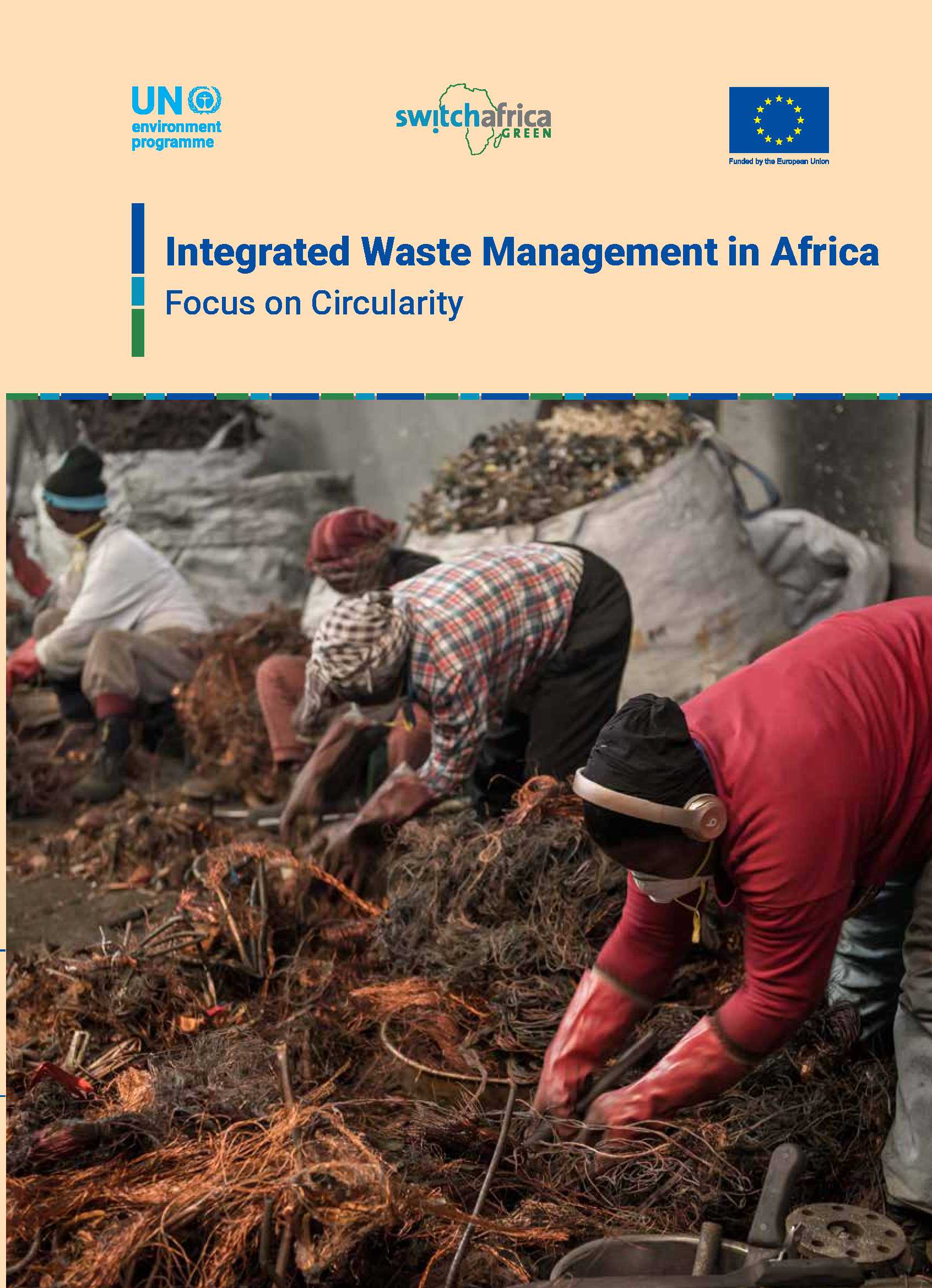The sector report presents an analysis of the implementation and results of the SWITCH Africa Green programme in the integrated waste management (IWM) sector focusing on the participating countries: Burkina Faso, Ghana, Kenya, Mauritius, South Africa and Uganda. It covers the strategic interventions in the waste sector notably municipal solid waste management, e-waste management, waste to energy (e.g. biogas production and briquette production), as well as industrial symbiosis (IS). It analyses the results realised, cross cutting issues, challenges, lessons learnt and presents a set of recommendations. The report is informed by a SWITCH Africa Green programme survey carried out in May 2018, grantee reports, case studies, peer reviews and regional stakeholder consultations including a regional sector meeting held 2019 in Accra, Ghana.
The analysis of the results reveals that the implementation of the SWITCH Africa Green programme activities in the IWM sector has facilitated the uptake of SCP practices and patterns by MSMEs
Eighty-nine per cent of the surveyed enterprises reported that the capacity of personnel had been enhanced during the project implementation period, which is a good indicator of improved awareness and capacity to implement SCP practices. It is encouraging that 83 per cent of the surveyed enterprises reported improved business skills and 74 per cent recorded increased sales turnover. Some of the policy changes include personal protective equipment (PPE), waste segregation, recycling and reuse, record keeping, inventory monitoring, the proper dismantling of e-waste, energy efficiency, and resource monitoring. Regarding the social dimension of development, positive gains in terms of employment and improved working conditions have been noted. Sixty-eight per cent of the surveyed MSMEs reported that new jobs had been created during the period of the implementation of the SWITCH Africa Green programme. Based on the survey data, 2,683 new jobs were created during the implementation of the programme, with 63 per cent of the new jobs created in the IS subsector. Seventy-three per cent of the surveyed enterprises reported improved working conditions as a result of the use of PPE and the implementation of procedures to protect workers from safety and health hazards. The PPE included safety boots, helmets, gloves, and goggles. There is scope to increase women and youth labour participation in the sector.
On the environmental front, the project recorded remarkable benefits. Seventy per cent of the MSMEs implemented 3R interventions. Some of the environmentally friendly interventions adopted include reuse and recycling, sale of waste, segregation at source, and better disposal. In Burkina Faso, 3,700 tonnes of waste were diverted from uncontrolled dumpsites, of which 2,200 tonnes went to composting and recycling activities. In Ghana, 20,000 tonnes of e-waste were recycled, benefiting directly and indirectly about 2,100 Ghanaians living in Accra, and in Mauritius, 2,677 tons of the waste was diverted annually from landfills and used locally as raw materials in the IS subsector
The SWITCH Africa Green programme is funded by the EU to support governments and the private sector in African countries (Burkina Faso, Ethiopia, Ghana, Kenya, Mauritius, South Africa, and Uganda) in the transition to an inclusive green economy (IGE). The programme is implemented by the UNEP in collaboration with the United Nations Development Program (UNDP) and United Nations Office for Project Services (UNOPS). The overall objective of the programme is to support the countries to achieve sustainable development based on SCP practices and patterns, while generating growth, creating decent jobs and reducing poverty.

